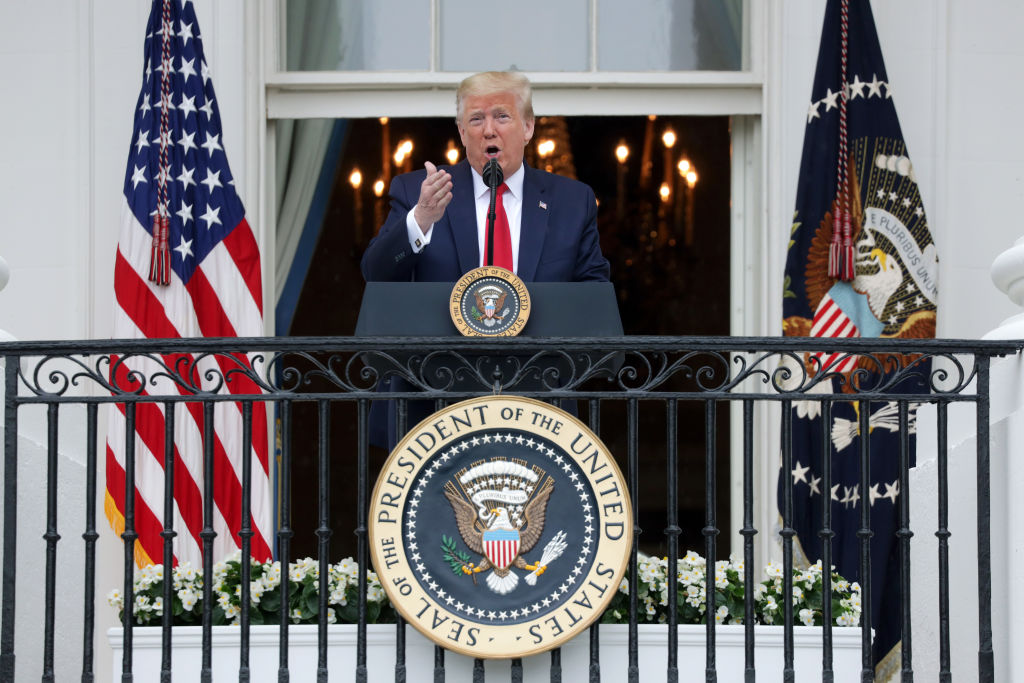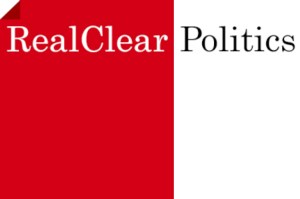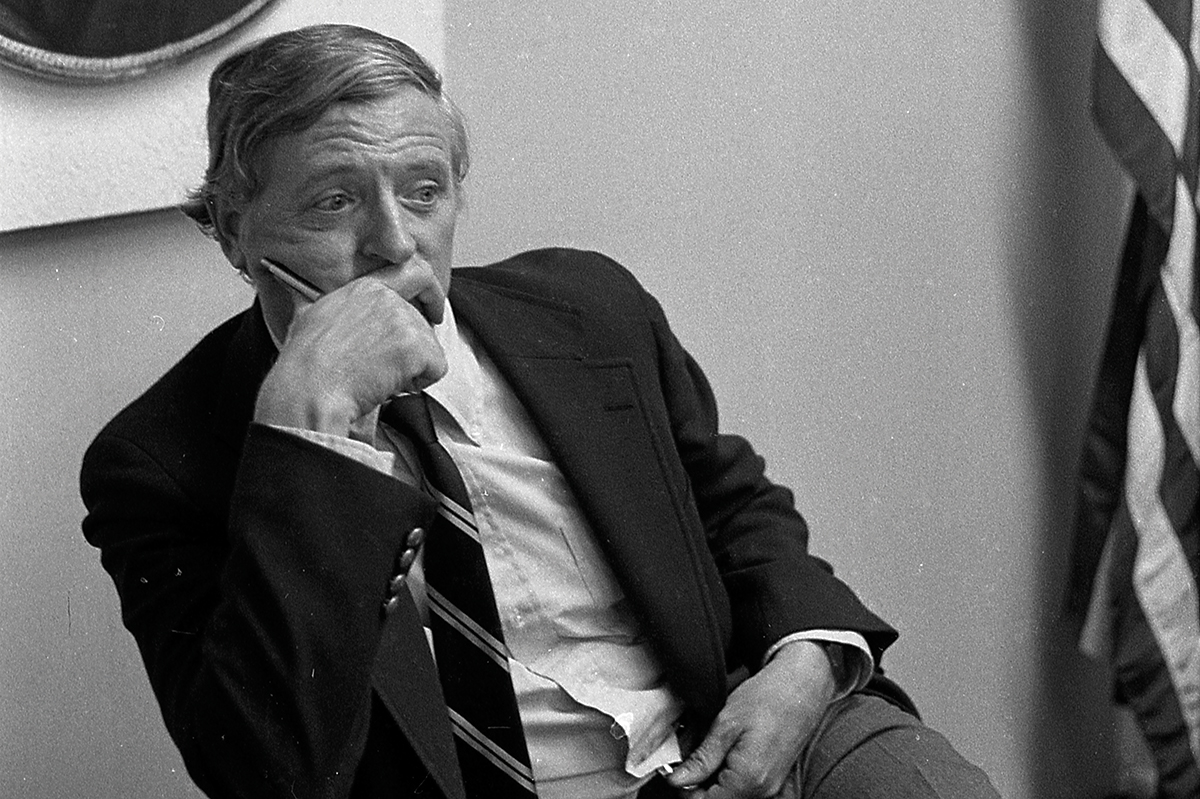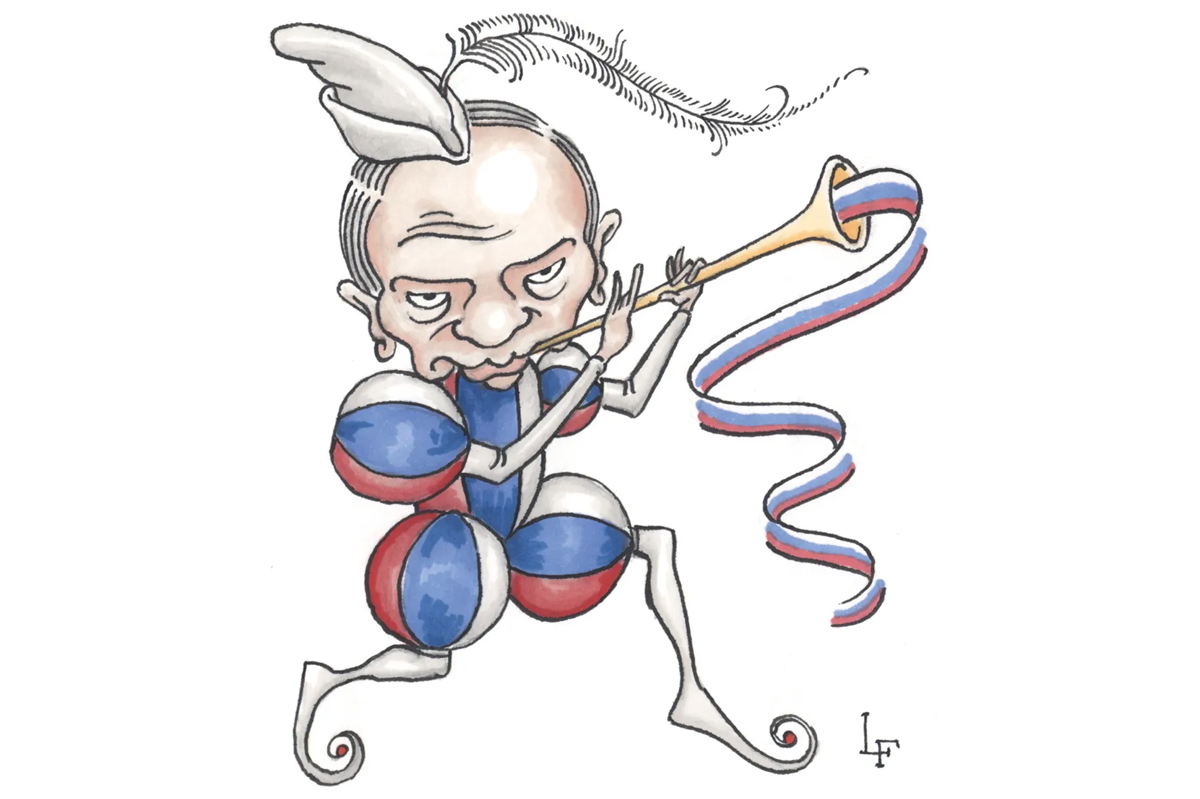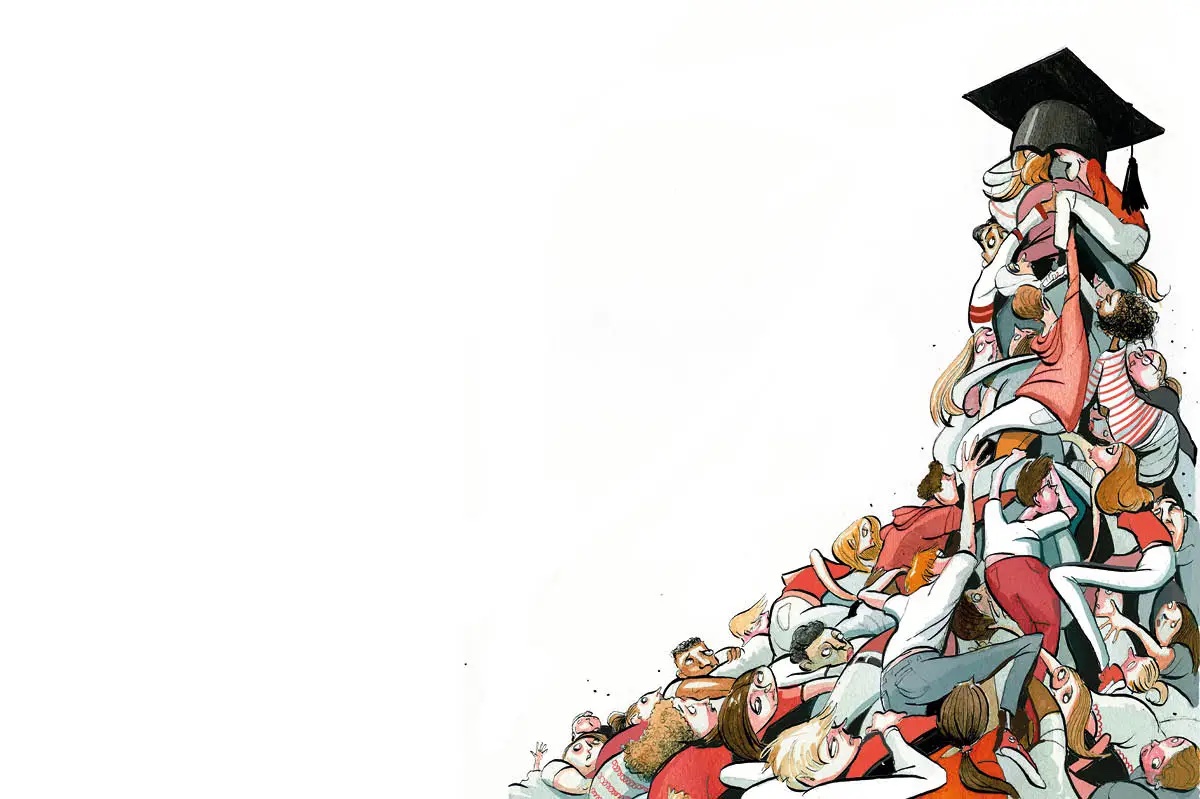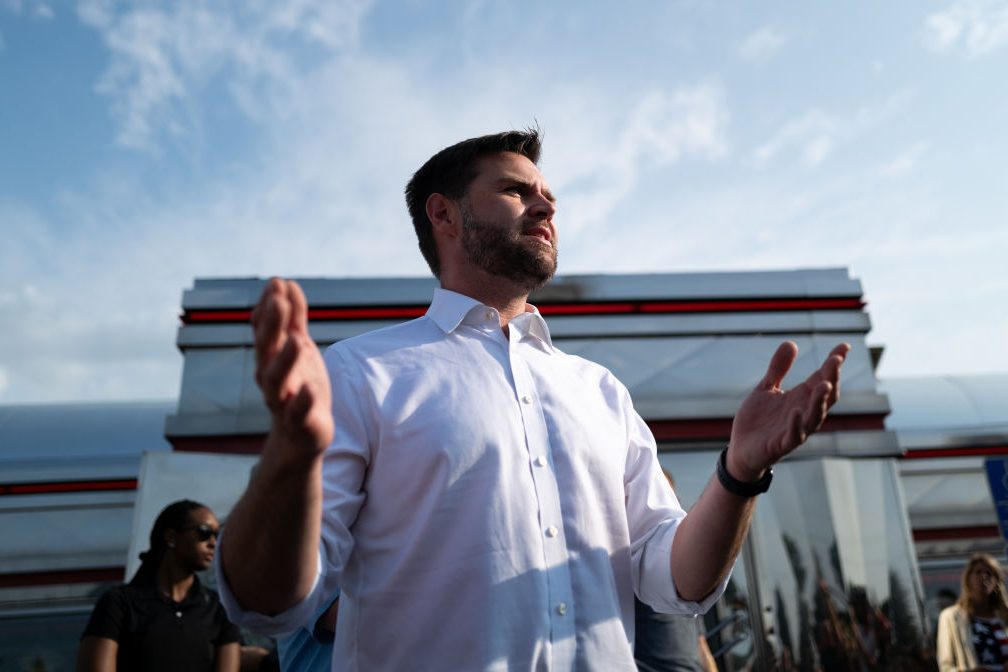The modern American conservative tradition – roughly dating from the dawn of the 20th century — emerged in reaction to modernity itself. Modernity meant machines, speed, and radical change — taboos lifted, bonds loosened and, according to Max Weber, ‘the disenchantment of the world.’ It induced, and perhaps required, centralization. States accrued power. Bureaucracies thickened. Banks, corporations, rail systems and industrial enterprises grew to mammoth proportions. War became more destructive.
Modernity promised liberation and for many did improve the quality of everyday life. Yet it also subjected individuals to immense and only dimly comprehended forces. In exchange for choice, it demanded conformity. Modernity demolished tradition or rendered it irrelevant. What remained of the past might retain interest as artifact, but was drained of substantive relevance.
Liberals, progressives, leftists — choose what label you will — have tended to embrace modernity, seeing it, on balance, as a positive force. By comparison, conservatives have typically viewed modernity as a threat, responding to it with a mixture of apprehension, alarm, and horror. I am not suggesting that in the long, contentious, at times bitter debate about America’s purpose and destiny, proponents of conservatism have necessarily gotten things right. The issues being contested are too complex to allow for reductive judgments of right or wrong, good or bad. Yet in the crisis that has enveloped 21st-century America — a crisis made starkly manifest by Donald Trump’s election as US president in 2016 — conservative principles deserve a second look, even, or especially, from those who bridle at the very use of the term.
Skeptics might respond that Americans today already have more than ample exposure to conservative perspectives, whether coming directly from Trump’s White House, from megaphone-wielding House and Senate Republicans, or from outlets such as Fox News, AM talk radio and rightwing websites. Yet all of these qualify as conservative only in the sense that blue-chip recruits at a football factory qualify as ‘student-athletes’. Any resemblance to the real article is superficial and manufactured.
Donald Trump is many things, but he is not a conservative. Nor are the leaders of the Republican party over which Trump nominally presides. Prominent GOP figures such as Kentucky senator Mitch McConnell adhere to no worldview worthy of the name. They are cynical, opportunistic and devoid of ideals. As for the provocateurs who inhabit the sprawling universe of right-wing media, their principal motive is not to promote genuine conservative values but to rouse the rabble and line their own pockets. Indeed, allowing Trump, McConnell, Sean Hannity, Laura Ingraham, Rush Limbaugh et al to present themselves as exemplary conservatives testifies to the pervasive corruption of contemporary American political discourse.
So except among the multitudes who sport MAGA hats and look to the likes of Sean, Laura and Rush for instruction, the conservative brand has of late been badly tarnished and even degraded. As a result, conservatism today has become synonymous with meanness, bigotry and retrograde attitudes. But this condescending characterization is wildly off the mark.
How did the American conservative tradition acquire a reputation as both noxious and intellectually disreputable? Trumpism provides a convenient but utterly inadequate answer to that question. More important are two related factors that long precede Trump. The first factor is history — or at least the myth-history to which Americans choose to attribute abiding significance. The second is the anti-conservative progressive tradition, whose adherents long ago seized the high ground in American intellectual life and have successfully defended it ever since.
Of course, it is progressives who curate that myth-history and thereby determine the hierarchy of truths that it purportedly yields. Preeminent in determining that hierarchy were two specific events, the one related to politics and the other to America’s role in the world. The first was the Great Depression. Then hard on its heels — as much sequel as distinct episode — came World War Two.
Broadly speaking, in each case, the analysis and prescriptions offered by leading conservatives proved at least inadequate, where not downright misguided. On the Great Depression, fearing an irreversible expansion of state power, conservatives resisted the conclusion that restoring economic health was going to require large-scale and protracted federal intervention. On World War Two, until the attack on Pearl Harbor, many influential conservatives strenuously opposed US entry into the conflict that Nazi Germany had begun and appeared to be winning, fearing a recurrence of the disillusionment that occurred just two decades earlier when the United States, discarding all past precedent, had raised an army to fight in Europe.
Conservatives can no more escape these twin failures of judgment — for so they have been judged ever since — than the ghost of Jacob Marley can shed his chains. Yet concluding that on the two pivotal episodes of the 20th century the left was right and the right was wrong soon enough gave rise to its own misimpressions and mistakes.
Crediting the New Deal with restoring American prosperity has turned out to be a vast oversimplification, impeding our understanding of the factors that finally brought the Great Depression to an end. In that regard, the global conflagration of another war rather than an array of well-intentioned, but sometimes contradictory domestic reforms proved decisive. Worse still, identifying ‘isolationism’ as an abiding temptation to which Americans were susceptible imparted an interventionist tilt in postwar US policy, contributing appreciably to catastrophes such as Vietnam and the 2003 invasion of Iraq. Intent on inoculating the United States from so-called isolationism, the foreign policy establishment fell prey to militarism and ultimately preventive war. Throughout, dissent voiced by conservative intellectuals went largely unheeded.
Indeed, in the aftermath of World War Two, with the liberal ascendency in politics now at its height, liberal thinkers and activists denied even the existence of an intellectually coherent and morally acceptable alternative to their own beliefs. Liberals occupied, indeed, owned, the ‘vital center’ of American politics, as the historian and Harvard product Arthur Schlesinger, Jr put it, thereby consigning all others to the ignominious fringes. To the left of this vital center were communists, to the right conservatives. In Schlesinger’s construct, both were enemies of freedom: American communists as lackeys of the Soviet Union, conservatives as willing pawns of Big Business.
To the literary critic Lionel Trilling, writing in 1950, the facts of the case were likewise plain to see. Liberalism, he wrote, was ‘not only the dominant but even the sole intellectual tradition’ present on the American scene. Try as he might, Trilling could discern ‘no conservative or reactionary ideas in general circulation’, merely ‘irritable mental gestures which seem to resemble ideas’.
Other members of the eastern academic elite concurred. In an influential book that appeared in 1953, Harvard professor Louis Hartz ruled that ‘the American community is a liberal community’. Conservatism, largely confined to the antebellum South, was beset by ‘fantastic contradictions’ that made it ‘an alien child in a liberal family, tortured and confused’ and doomed to destruction. American politics did not allow for an alternative to liberalism.
The prize-winning historian Richard Hofstadter, who like Trilling taught at Columbia, indicted what he called ‘the far right wing’ for ‘a categorical folkish dislike of the educated classes and of anything respectable, established, pedigreed, or cultivated’. Thus did conservative inclinations invite lampooning.
According to Schlesinger, Trilling, Hartz, Hofstadter and other members of their exalted but thoroughly unrepresentative community, sincere seekers after enlightenment necessarily look left. As a class, therefore, intellectuals have tended to embrace a progressive outlook, taking for granted the correlation between a liberal orientation and wise, farsighted or providentially foreordained outcomes. By extension, serious conservative thinkers have tended to languish outside of the mainstream, talking to one another without reaching a larger audience. Indeed, in some quarters, even today, the very phrase conservative intellectual tradition carries with it oxymoronic connotations.
Handed down as if from the atop Mount Olympus, or least from Morningside Heights and Harvard Yard, this verdict seemed incontrovertible — at least it did until Vietnam rolled round and the hegemony of postwar liberalism crumbled with astonishing suddenness. A New Left rose up to deflate Cold War liberalism’s pretensions to inevitability and presenting conservative intellectuals an unforeseen opportunity to be heard. Yet even before Vietnam and the upheaval of the 1960s, they had begun to challenge their marginalization, if not effectively, at least noisily.
Launching his conservative journal of opinion in 1955, the young journalist William F. Buckley declared that National Review ‘stands athwart history, yelling Stop’. As a branding ploy, it was a clever formulation. Yet it was also a bit of journalistic flimflam. The purpose of Buckley’s magazine was not to stop history, but to nudge it in a positive direction. Much the same can be said about conservatism itself. Yet such nudging presumes a capacity to distinguish between truth and folly.
Unfortunately, postwar movement conservatives, many of them rallying around Buckley and his upstart magazine, struggled to make that distinction. What little most Americans today know about conservatives after World War Two does not make for a flattering or reassuring record. For example, many (including Buckley himself) supported Wisconsin senator Joseph McCarthy in his reckless crusade to purge the US government of communists and fellow travelers. When revolutionaries led by Mao Zedong seized power in Beijing, they insisted that the defeated Nationalists, now sequestered on the island of Taiwan, continued to represent the ‘real’ China. Perhaps most egregious were conservative attitudes regarding civil rights, the great moral issue of the day. Sympathizing with white Southerners who were resisting efforts to dismantle segregation, many conservatives attributed greater importance to preserving the social status quo than to confronting racial injustice. In all of this, postwar conservatives managed to convey the impression of being ill-tempered, small-minded, devoid of both judgment and compassion, and given on occasional to views that were at least disquieting, if not altogether repellent.
Yet let me suggest that what we have here are examples of self-described conservatives violating genuine conservative precepts. Reprehensible? Yes. Unforgivable? Well, only if promoting eugenics, enacting racist immigration laws and criminalizing the possession and consumption of alcoholic beverages, as progressives did after World War One, invalidates the basic principles that progressives and liberals hold dear.
To his followers, Jesus had commanded: love God and love your neighbor. Over the course of two millennia, Christians acting in his name proceeded to commit numberless crimes up to and including genocide. Do these crimes nullify Christ’s teachings? No, they merely testify to the abiding sinfulness of humankind. So too with American conservatism: It deserves to be judged by the core principles that conservatives have articulated, not by the occasions when those principles have been trampled upon.
***
Get three months of The Spectator for just $9.99 — plus a Spectator Parker pen
***
Conservatism is more akin to an ethos or a disposition than to a fixed ideology. So conservative thinkers frequently disagree with one another — much as do progressives, not to mention Marxists, socialists, fascists, anarchists, libertarians, and distributists. Intellectuals tend to be a quarrelsome lot. Yet their intramural quarrels notwithstanding, most American conservatives, most of the time subscribe to a common set of propositions from which to fashion a critique of American politics, policies, and culture and proffer alternatives. Those propositions have evolved over time — conservatism is anything but static. Yet in the first quarter of the 21st century, they have come to center on the following:
- a commitment to individual liberty, tempered by the conviction that true freedom entails more than simply an absence of restraint
- a belief in limited government, fiscal responsibility, and the rule of law
- veneration for our cultural inheritance combined with a sense of stewardship for Creation
- a reluctance to discard or tamper with traditional social arrangements
- respect for the market as the generator of wealth combined with a wariness of the market’s corrosive impact on humane values
- a deep suspicion of utopian promises, rooted in an appreciation of the recalcitrance of history and humankind’s recurring susceptibility to hubris
Today the United States finds itself at a crossroads. We confront perplexing problems to which there are no glib answers or easy solutions. The questions we face are fundamental: What is the common good? What is the meaning of freedom? What are the responsibilities of citizenship? What is America’s proper role in the world?
Most fundamentally, on each of these, we wonder where to look for guidance. My firm conviction is this: to understand how the United States arrived at its present confused and divided straits — and perhaps even to begin navigating back toward less troubled waters — the American conservative tradition offers insights worth considering.
Adapted from the introduction to American Conservatism: Reclaiming an Intellectual Tradition edited by Andrew J. Bacevich (Library of America, $30). Copyright © 2020 by Literary Classics of the US, Inc. Used by permission. All rights reserved.



